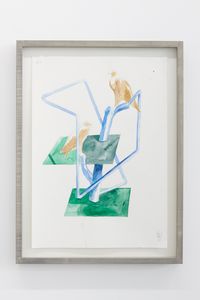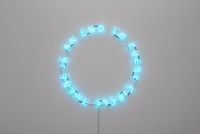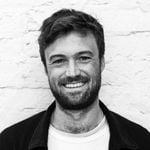Vikenti Komitski was born in 1983 in Sofia. He lives and works in Berlin. He graduated in Sculpture from the National Academy of Art in Sofia. He works with objects, installations and video. His solo shows are: New Poor, ICA, Sofia (2013); Subjective Geography, Sariev Contemporary, Plovdiv (2011); 1:200, 0gms gallery, Sofia (2010); No Image Available, The Fridge, Sofia (2010); #1, Vaska Emanuilova Gallery, Sofia (2009). Komitski has participated in the following group shows: Places of Transition, curated by Gülsen Bal and Walter Seidl, freiraum quartier 21, Vienna (2014); Sofia Contemporary festival (2012); Go West! Muzeon Art Park, Moscow, special project for Moscow Young Art Biennail (2012); Is It Free?, NutureArt Gallery, New York (2012); Together Again, Radiator Gallery, New York (2012); Isolation, Senatsreservenspeicher, Berlin (2012); East Of Best, Roodkapje, Rotterdam (2011); The End And Beyond, Bania Starinna Center for Contemporary Arts, Plovdiv (2011); Poor But Sexy, Sariev Gallery, Plovdiv (2011); An Exclusive Object of Art, Dana Charkasi Gallery, Vienna (2011); Entrepot, Krinzinger Gallery, Vienna (2011); August in Art Biennial, Varna (2010); Beyond Credit, Antrepo 5, Istanbul (2010); FQ Test, GMG Gallery, Moscow (2010); Photo I Photo You, Calvert 22, London (2010); Breaking Walls Building Networks, Macedonian Museum of Contemporary Art, Tesaloniki (2010); From Ideology to Economy, Contemporary Bulgarian Art 20 Years Later, The State Central Museum of Contemporary History of Russia, Moscow (2009); Remember Sofia Underground, Shipka 6, Sofia, curators: Yovo Panchev and Ruen Ruenov (2009). He has been a resident artist at SIM, Reykjavik (2009), Futura, Prague (2011) and ISCP, New York (2012). Vikenti won the BAZA Award for 2011 and has been nominated twice (2009, 2011) for the Gaudenz B. Ruf Award for New Bulgarian Art. SARIEV Contemporary presented Vikenti Komitski at Art Rotterdam (2016), Art Brussels (2016), Vienna Fair (2016), Contemporary Istanbul (2011).
Read More“The artistic work of Vikenti Komitski revolves around everyday objects whose context and meaning are analyzed, scrutinized and transferred into a different reality. Komitski changes the nature of objets trouvés as well as of specifically chosen commodity goods that refer to the reality from which they were taken and in which they were originally used. However, Komitski's use of ready-made principles is not only applied to objects but also to ideas.” Walter Seidl
Text courtesy SARIEV Contemporary, Plovdiv.
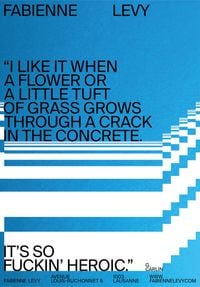
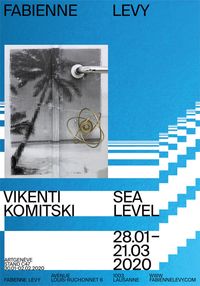
![Melting Images [4] by Vikenti Komitski contemporary artwork painting, works on paper, photography, print](https://files.ocula.com/anzax/a8/a87ee4a8-99e5-4d53-a71f-f922b63ffd9d_200_276.jpg)
![Melting Images [2] by Vikenti Komitski contemporary artwork works on paper](https://files.ocula.com/anzax/ba/ba0b3bd0-da26-4ea8-91b1-387dfadfcd22_200_276.jpg)
![Melting Images [3] by Vikenti Komitski contemporary artwork works on paper](https://files.ocula.com/anzax/87/878b46bb-4e9a-48e3-bf12-b81f0d2b84c4_200_276.jpg)

